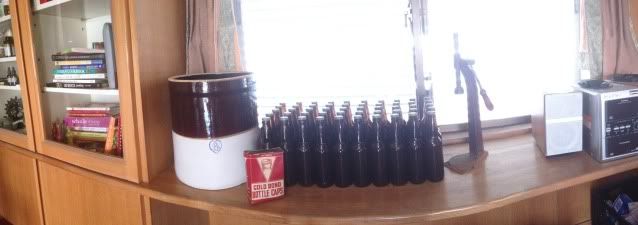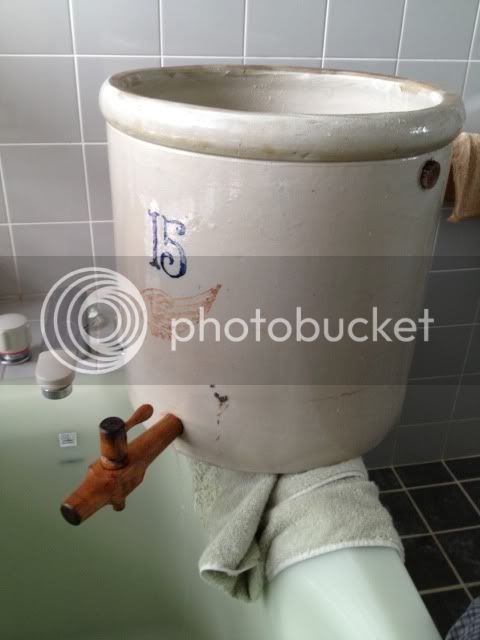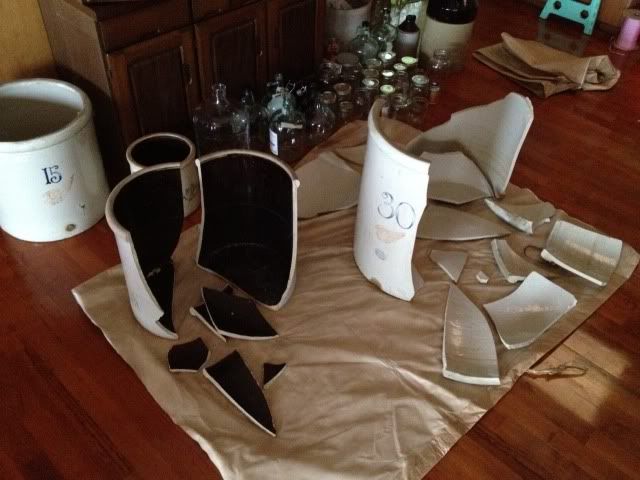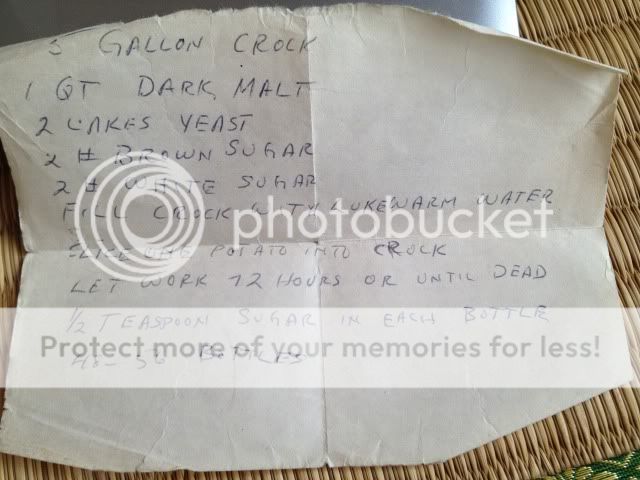pedroheartsummer
Member
after grandpa passed away we found his malt liquor recipe, his old stone crock, rusted bottle capper, and even a box of decades old caps (with cork inside the top to seal against the bottle). we followed his recipe and used all of his old supplies, which had probably been sitting in his garage for longer than i've been alive. yesterday we bottled 5 gallons, and it occurred to me that these are essentially like beer time capsules. the date: 1950, the place: south dakota. i cant wait to crack one open and taste what he was drinking with the brothers in his fraternity.

















![Craft A Brew - Safale BE-256 Yeast - Fermentis - Belgian Ale Dry Yeast - For Belgian & Strong Ales - Ingredients for Home Brewing - Beer Making Supplies - [3 Pack]](https://m.media-amazon.com/images/I/51bcKEwQmWL._SL500_.jpg)













































